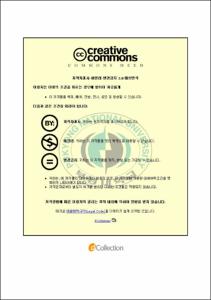지반조건과 이음부 특성의 변화에 따른 쉴드터널 라이닝의 거동
- Alternative Title
- Behavior of Shield-drivenTunnel Lining Depending on Ground Conditions and Joint Characteristics
- Abstract
- The shield-driven tunneling method has been widely adopted for the construction of urban underground tunnels in soft and collapsed ground due to its flexibility, cost effectiveness and the minimum impact on ground traffic and surface structures. Recently, jointed segmental precast concrete linings connected by steel bolts are commonly used instead of steel or cast iron segments in most shield-driven tunnels. As the lining of a shield-driven tunnel is not a continuous ring structure due to the existence of joints, the effects of the joints on internal forces and displacements should be taken into consideration in the design of the tunnel lining.
This study estimated joint characteristics of jointed shield-driven segment lining by comparing the results of analytical solutions using force method and numerical analysis simulating FEM program in order to determine the internal forces and displacements of jointed shield-driven tunnels. Factors such as joint stiffness, soil resistance, joint distribution, number of joints can be considered in the proposed method.
- Issued Date
- 2007
- Awarded Date
- 2007. 2
- Type
- Dissertation
- Keyword
- Shield-driven tunneling Jointed segmentalprecastconcrete linings Jointdistributio Jointstiffness 쉴드터널 라이닝
- Publisher
- 부경대학교 대학원
- Alternative Author(s)
- Kim, Hui-Jun
- Affiliation
- 부경대학교 대학원
- Department
- 대학원 토목공학과
- Advisor
- 정두회
- Table Of Contents
- 제 1 장 서론 = 1
1.1 연구배경 = 1
1.2 연구의 목적 = 2
1.3 연구의 동향 = 2
1.4 연구방법 및 범위 = 3
제 2 장 쉴드터널의 문헌분석 = 4
2.1 국내의 문헌 = 4
2.2 일본의 문헌 = 5
2.3 구미의 문헌 = 7
제 3 장 쉴드공법의 개요 = 9
3.1 쉴드공법 = 9
3.2 쉴드공법의 특징 = 10
3.2.1 쉴드공법의 장점 = 10
3.2.2 쉴드공법의 단점 = 11
3.3 쉴드터널의 세그멘트 = 11
3.3.1 세그멘트의 종류 = 11
3.3.2 세그멘트의 연결방법 = 13
제 4 장 지반반력 = 15
제 5 장 세그멘트 라이닝의 이론해 = 18
5.1 이음부의 강성 = 18
5.2 응력법을 이용한 이론해 = 21
5.2.1 적용 하중계 모델 = 21
5.2.2 세그먼트 라이닝의 내력과 변위의 계산 = 24
5.2.3 내력 및 변위 계산을 위한 반복계산법 = 34
제 6 장 이론해를 이용한 해석 결과 = 36
6.1 이음부 강성비와 지반반력의 영향 = 37
6.2 이음부 분할분포의 따른 영향 = 41
6.3 이음부 분할개수에 따른 영향 = 42
제 7 장 유한요소법을 이용한 수치해석 = 44
7.1 구조모델의 수치해석 = 44
7.1.1 1Ring 빔스프링 모델 = 44
7.1.2 2Ring 빔스프링 모델 = 47
7.1.3 전주면 빔스프링 모델(1Ring-S0) = 48
7.1.4 구조모델의 평가 = 49
7.1.4.1 1Ring 빔스프링 모델 = 49
7.1.4.2 2Ring 빔스프링 모델 = 51
7.1.4.3 전주면스프링 모델(1Ring-S0) = 54
7.2 하중모델의 평가 = 55
7.2.1 Terzaghi의 이완토압 모델 = 56
7.2.2 하중모델에 따른 수치해석 결과 = 57
제 8 장 결론 = 60
참고문헌 = 62
- Degree
- Master
- Files in This Item:
-
-
Download
 지반조건과 이음부 특성의 변화에 따른 쉴드터널 라이닝의 거동.pdf
기타 데이터 / 2.32 MB / Adobe PDF
지반조건과 이음부 특성의 변화에 따른 쉴드터널 라이닝의 거동.pdf
기타 데이터 / 2.32 MB / Adobe PDF
-
Items in Repository are protected by copyright, with all rights reserved, unless otherwise indicated.